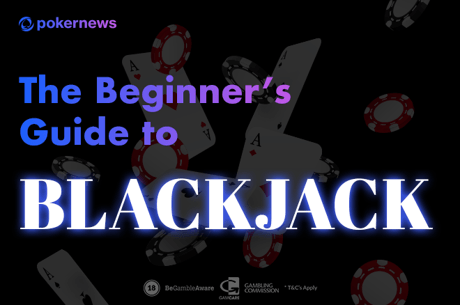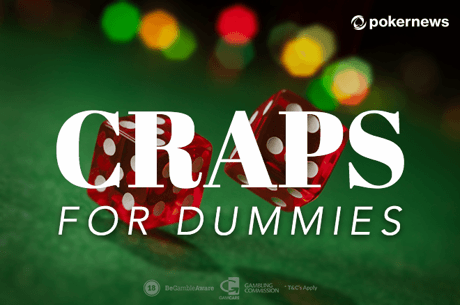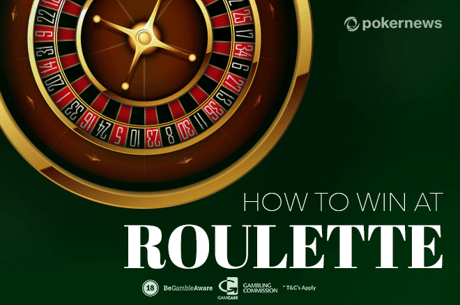Stud Poker Strategy: Don't Believe Everything You Read

I just read an article in a leading poker publication by an excellent poker writer that contained some seriously flawed thinking. At least I think it did. Let me paraphrase and then quote what was written and then explain why I think it was wrong. I'll then give you an example from a stud game of how you can't let this kind of thinking interfere with making the right betting action. See if you agree with me or the other guy.
The other writer was writing about a close call pre-flop in a hold'em game. The author had a middle pair, limped in and watched in dismay as his hand was then raised and reraised. He explained why he felt he had to call.
"I was faced with the decision of calling two more bets with the chance of facing additional raises against only three opponents or folding with my initial $30 in the pot. Neither choice was favorable, but calling $60 was a better play than leaving $30 of dead money [in] the pot. I called."
He then continued to chase the hand, noting that the pot was raised and then capped. He called once again, justifying it with "Leaving $90 of dead money in the pot would be horrendous."
The conclusions – to call a raise and a reraise, then to call another two bets when the pot is raised and reraised may or may not be correct. I am not going to quibble with a limit hold'em expert on that. But the analysis is completely wrongheaded — and what's worse, it leads readers to embrace a general method of poker analysis that is dead wrong as well.
Did you spot something in the story that struck you as wrong? It seems so glaring to me that I can't believe every serious poker player doesn't see it.
Here's what I see. A player is concerned with how much of his money is in the pot? He's concerned with how much of his dead money he would have left behind if he folded. He's considering how much he put into the pot when he's evaluating whether it is correct to call.
It's not only wise to consider the size of the pot when you decide on a particular poker action; it's essential. For example, in stud, on sixth street, if you bet $40 in a $20/40 game with your pair of aces and get raised by someone showing a three-flush, you must consider what the size of the pot is when considering whether to call – into what may be a flush – or fold. You'd consider how many more bets you'd win if you won the pot and how many bets you'd lose if you called until the river and lost.
What you surely wouldn't do would be to calculate how much money you had already put in the pot. It doesn't matter where the money in the pot came from. It matters only what the size of the pot is and how much you will eventually have to put in the pot to win it.
Unfortunately, many players feel a connection to a pot that they have contributed to. They make calculations, much as this author did, involving how much money they have already put in. "What's another $40 when I've already put in $80?" they think.
Don't do this. Treat every call as a separate decision, involving only the money that is in the pot, the money that you have to put in the pot, and the money that you will eventually win and contribute if you take the pot to its conclusion.
Here's another stud example.
It's fifth street. You have led the betting with a split pair of aces. You had three callers on third street. On fourth street you didn't improve; one player caught a second suited card, and the other two caught seemingly unhelpful cards. You led out again, as you surely must – to make your opponents pay to chase you. Sure enough, two players did chase – including the player with the two suited cards. On fifth street, one opponent didn't seem to catch anything helpful and the other player got a third suited up card. You did not improve either.
It is your turn to act – you are high on board. Your first action is to either bet or check. You don't want to give your suited opponent a free draw – in case he only has four of a suit. And you don't want to be raised if you bet and he has caught the flush. It is a poker dilemma.
You look at the pot. It is engorged by all of the early callers and the three-way pot on fourth street. You should think about whether you would fold if you checked and your suited opponent raised. You realize that you don't know him well enough to do that – since you'd have to assume there is a fairly good chance that he might bet even without the flush. So you bet.
Sure enough, he does raise, making it $80 for your third opponent. He elects to fold.
You face a $40 raise of your initial $40 bet. What do you do? That depends on how much credit you give his flush. If you could see his cards and were certain he had the flush then you would surely fold. Though the pot is $260 and you are getting better than 6:1 odds on a call, you are an extreme underdog to beat him with only a pair of aces – having to catch two perfect cards on each of the next two rounds (you're about a 33:1 underdog).
On the other hand, if you estimated that he would often bluff with four or even three hearts in this situation then you should call, hoping that he was bluffing and that you were in the lead. You'd see the 6:1 odds that the pot was laying you. You'd figure that there was much better than a 6:1 chance that he didn't have you beat, and you'd call the raise – knowing that you had a good chance of winning a large pot.
But what you should never do is think about the bets you had already put in the pot – either on that round or on earlier rounds of betting. They only are important in so far as they make up part of the pot. Had you contributed three big bets or two or one or none – it would make no difference in your decision to call. All that you'd care about was the size of the pot, the size of the bet, and the odds that you might win the pot. How much you contributed would be of no importance to you.
Unfortunately, many otherwise good poker players do take how much they put into the pot into consideration. They think that since they bet initially, they'd be foolish to fold to a raise. They feel that they're invested in that round of betting and that they can't just fold to raise. But they are wrong about that.
While it's true that it feels relevant — to have invested money in a hand that you are in — it isn't important. Once the money leaves your stack it is no longer yours – it belongs to the pot and, eventually, to whomever wins the pot.
It is hard, if not impossible, to distance the decision to call or fold to a raise of your initial bet from the initial bet itself. But to play your best game you must.











